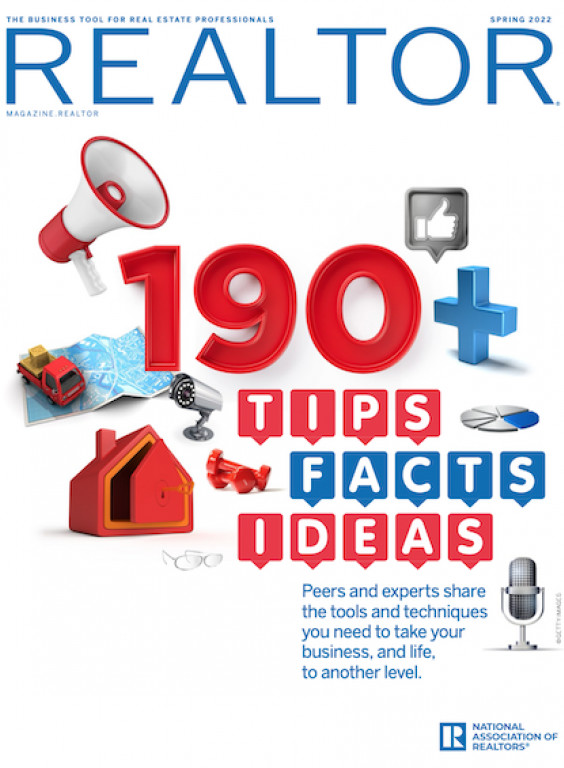Lee Davenport became a real estate professional in 2008. Since then, she says, not a year has gone by when racial bias in an appraisal wasn’t suspected by one of her clients or one of the agents she coaches.
“With this hot market, on the sales side, it’s glaring if the appraisal comes in low for people of color,” says Davenport.
Multiple news stories have examined potential bias in appraisals, reporting cases in which Black homeowners’ valuation came in low, only to increase in a second appraisal after all personally identifiable photos and cultural items were removed.
In September 2021, a Freddie Mac report found that appraisal values are more likely to fall below the contracted sales price in Black and Latino neighborhoods than in predominantly White areas. An evaluation of 12 million appraisals found that 12.5% of properties in Black census tracts and 15.4% in predominantly Latino areas received appraisal values lower than the contract price, compared to 7.4% for those in White neighborhoods.
Then, in December, the Federal Housing Finance Agency released a report, after examining millions of agency property valuations, that found thousands of potential bias cases related to neighborhood descriptions written by appraisers. The report cited examples where appraisers referenced the neighborhood’s racial makeup or the percentage of the local population who were immigrants. In February, Congresswoman Maxine Waters (D-Calif.), chair of the House Financial Services Committee, sent a letter to the Department of Housing and Urban Development, the Appraisal Subcommittee, the Appraisal Foundation, and the Appraisal Institute calling for an investigation. Meanwhile, HUD Secretary Marcia Fudge chairs the Interagency Task Force on Property Appraisal and Valuation Equity (PAVE), created in June 2021 to address discrimination in the appraisal and homebuying process.
Industry Response
The Appraisal Foundation, which sets congressionally authorized standards and qualifications for real estate appraisers, has included a segment on fair housing laws and bias in its required seven-hour continuing education USPAP course. And the Appraisal Institute recently added a five-hour seminar focused on addressing unconscious bias, updated its code of ethics, and created a practice guide affirming that appraisers should ignore ethnographic and other personal characteristic in property appraisals.
“We’re trying to create a more equitable housing environment in the country ... and ensure unconscious bias doesn’t play a role in appraisals,” says Jody Bishop, 2022 president of the Appraisal Institute and senior managing partner of Valbridge Property Advisors in Mount Pleasant, S.C.
One way to combat bias is to foster diversity in the industry, says Corey Hammonds, founder and CEO of The Hammonds Group in Nashville, Tenn. In 2016, Hammonds became the youngest African American certified general appraiser in the state of Tennessee.
“It’s an unintended lack of access. Many don’t know what appraisals are and what they do,” says Hammonds. “The qualifications to become an appraiser are very expensive. And people tend to deal with who they know, and if you’re not well connected, it’s a hard industry to tap into.”
There are 78,000 appraisers in the U.S., of whom 85% identify as White and 77% as male, according to The Appraisal Institute. The institute is partnering with Fannie Mae, Freddie Mac, and the National Urban League in an appraiser diversity initiative, reaching out to more diverse candidates and educating them about the appraisal profession.
The National Association of REALTORS® has its own diversity, equity, and inclusion initiative, including a mentoring program known as NAR Spire. NAR also worked with the Biden administration on the PAVE Action Plan, released in March, which provides 21 recommendations for both improving government oversight of the appraisal industry and working with federal agencies and stakeholders to educate consumers on how to recognize and report potential instances of appraisal bias. The action plan also suggests developing procedures to ensure automated valuation models do not incorporate bias in their estimations of value.
... appraisal values are more likely to fall below the contracted sales price in Black and Latino neighborhoods than in predominantly White areas.
—Freddie Mac report, 2021
What Salespeople Can Do
Real estate professionals can play a major role in combating racial bias by identifying red flags and taking recourse on behalf of their clients. Hammonds says agents should equip their buyers and sellers with knowledge about the appraisal process. Often, marginalized borrowers, including those in the Black, Hispanic, and Indigenous communities, have not had models of homeownership. “They might not know they can dispute an appraisal or steps they can take to request a second one,” says Tai Christensen, diversity, equity & inclusion officer at CBC Mortgage Agency, an FHA specialist whose mission is to help erase the racial disparity in real estate.“We lean into homeownership education, and our prospective buyers are taught about appraisals and appraisal bias and what that means.”
Davenport suggests asking lenders about their policies for handling racial bias in appraisals.
In another proactive move, agents can present comparable sales and facts about the house, including a list of recent updates and repairs. “I accept any information that a homeowner or agent gives me. It’s helpful,” Bishop says. “If an appraiser rejects it, that would be a red flag to me.”
If you still believe an appraiser has reached a conclusion that’s inaccurate or biased, the Appraisal Institute’s site outlines steps for reconsideration of value. Beyond that, agents who suspect bias can work with their client to file a report with their state housing authorities or a federal agency like HUD, says LendingTree Senior Economic Analyst Jacob Channel. “The Federal Trade Commission provides a good resource for how to spot mortgage discrimination and what those impacted by it can do in response,” he adds.
“I believe overwhelmingly there are more people today committed to listening, learning, and changing,” Bishop says.





